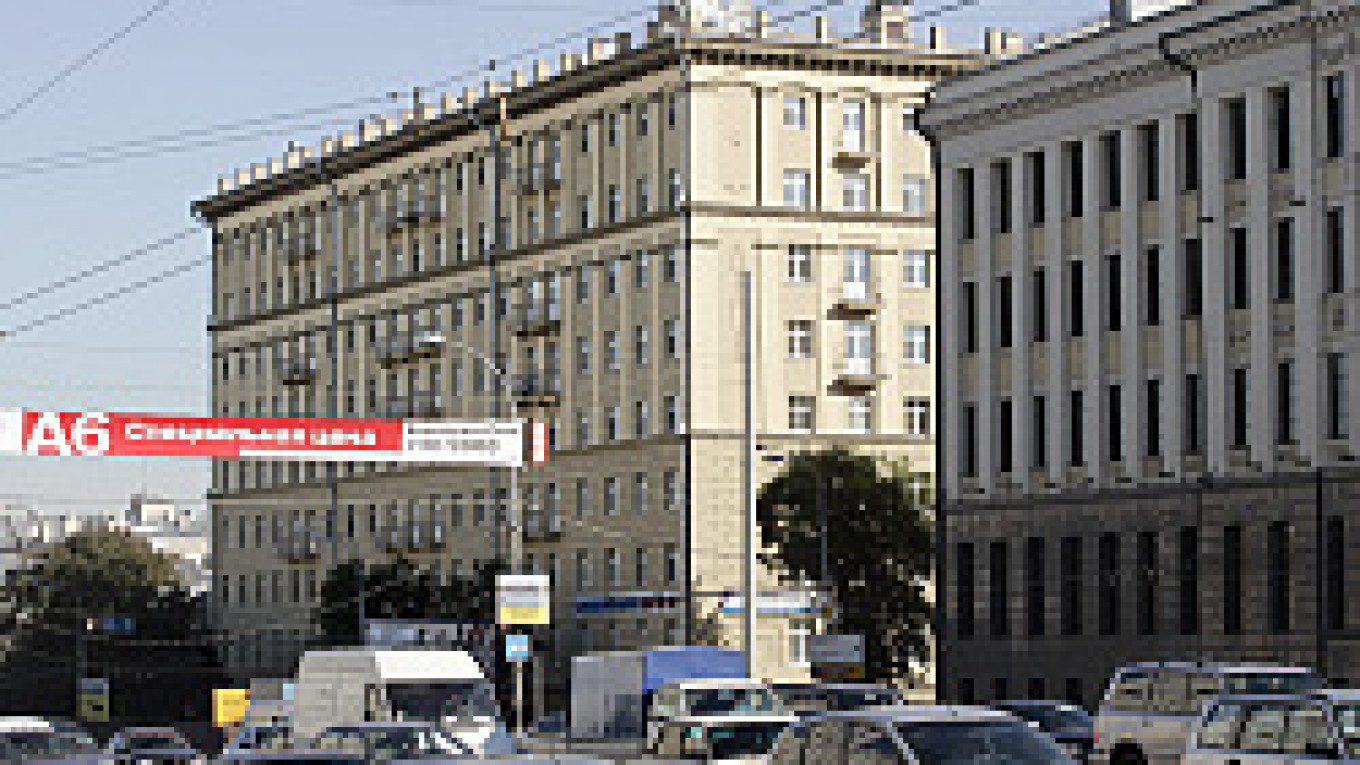The Stalin-era apartment building at 12/24 Sadovaya-Samotechnaya Ulitsa, commonly referred to by expats as Sad Sam, still boasts tight security, and the rumors of even stricter surveillance of its occupants still persist.
But the storied building no longer has the same hold on the foreign press corps.
With U.S. media companies scaling down operations overseas, papers like the Los Angeles Times have halved the number of reporters assigned to Moscow.
The Baltimore Sun, which won Pulitzer Prizes for its coverage of the Soviet Union in 1948 and 1949, moved into Sad Sam in 1954. Now, the paper is vacating its office and apartment within the next year.
"It was a gilded cage," Anthony Barbieri, the Sun's Moscow correspondent from 1979 to 1983 and later a managing editor at the paper, said of the Sad Sam of old. "With life so grim and dismal outside that cage, it was nice to add a touch of elegance."
Built in 1949 by German prisoners of war, Sad Sam welcomed its first correspondents when The New York Times set up shop in the early 1950s.
Previously required to file articles under an even more watchful eye at the Central Telegraph building, the Times and the Sun, along with the Los Angeles Times, Reuters, Agence France-Presse, Financial Times, CBS television and others, moved into Sad Sam. Other Western bureaus were given offices in compounds on Oktyabrskaya Ploshchad or Kutuzovsky Prospekt.
But it was Sad Sam, with its French doors, chandeliers, and kolonki -- hand-operated water heaters that disgorged flames but allowed residents to have hot showers all summer long -- that gained a snappy nickname and a reputation for luxury.
"When I first came to Russia in 1992, I had a flat at Ismailovo, spoke bad Russian and had a hard time feeding myself," said Alan Collison, now a seventh-floor Sad Sam resident and Wall Street Journal reporter.
"I stopped by the L.A. Times' office one day. They sat me on a couch and a woman in a glamorous dress gave me tea. I remember people there laughing. It sounded like money."
After a 2004 renovation, the chandeliers have been replaced with flourescent lighting. Metal-and-glass doors stand in for their wooden, French forebears. With three-room apartments going for some $2,500, the building is no longer considered terribly high-end.
The changes reflect a market rapidly moving toward luxury housing. In the past year, the average price per square meter of apartment space in the city has doubled. So-called elite apartments are sprouting up in a city that was once dominated by Khrushchev- and Brezhnev-era apartment blocks. Compared to some new developments, Sad Sam looks downright plain.
The building's appeal for local intellectuals and politicians, like its relative luxury, has also diminished in recent years.
Barbieri recalled the perils dissidents used to risk to enter Sad Sam and talk to a Western journalist. While metal gates now bar anyone without an electronic key from passing through the compound's lone entrance, in Soviet times guards allowed foreigners through, but Soviet citizens had to be accompanied by a resident. "I have no idea to this day how they knew anyone was a foreigner or not, but they did," Barbieri said.
Fearful of catching the state's attention, dissidents often met journalists at the nearby Obraztsov Puppet Theater. Crowds gathered to see figurines come out and chime the hours on a popular clock built into the front of the theater, providing cover for the dissidents.
Barbieri said a dissident once called him to ask whether they were meeting at the puppet theater at 11 a.m. or 11 p.m. When Barbieri arrived, the dissident was "snatched."
The Foreign Ministry's Diplomatic Corps Directorate continues to oversee the building's management. While the days of media censorship are over, residents are still wary of unnecessary "stove checks" or "filter changes" that staff drop in to do.
But many say the biggest challenge of living in a ghetto for foreign journalists today is losing touch with the country they are supposed to be covering.
"You get isolated here, even from one another," said Erika Niedowski, the Sun's last Moscow correspondent, whose office and apartment are in the building.
With luxury apartments and office buildings no longer confined to Moscow's one-time Western enclave, and with the West and Russia less curious about one another than they once were, Sad Sam's glory days may be behind it. But its place in history is secure.
A Message from The Moscow Times:
Dear readers,
We are facing unprecedented challenges. Russia's Prosecutor General's Office has designated The Moscow Times as an "undesirable" organization, criminalizing our work and putting our staff at risk of prosecution. This follows our earlier unjust labeling as a "foreign agent."
These actions are direct attempts to silence independent journalism in Russia. The authorities claim our work "discredits the decisions of the Russian leadership." We see things differently: we strive to provide accurate, unbiased reporting on Russia.
We, the journalists of The Moscow Times, refuse to be silenced. But to continue our work, we need your help.
Your support, no matter how small, makes a world of difference. If you can, please support us monthly starting from just $2. It's quick to set up, and every contribution makes a significant impact.
By supporting The Moscow Times, you're defending open, independent journalism in the face of repression. Thank you for standing with us.
Remind me later.


